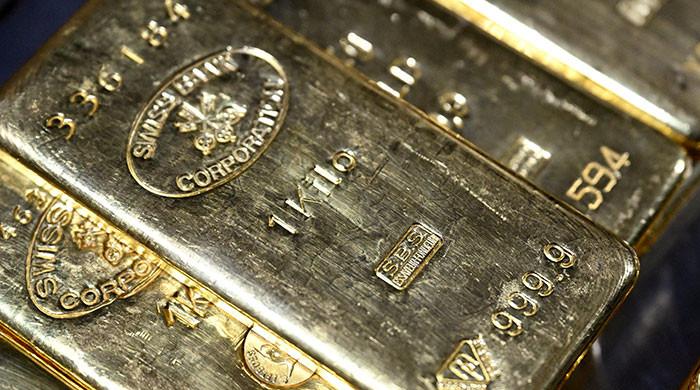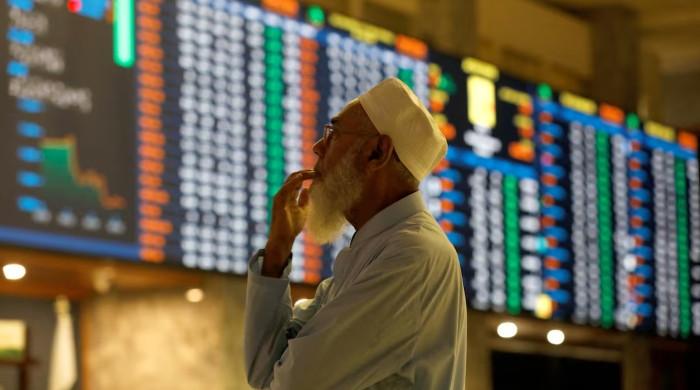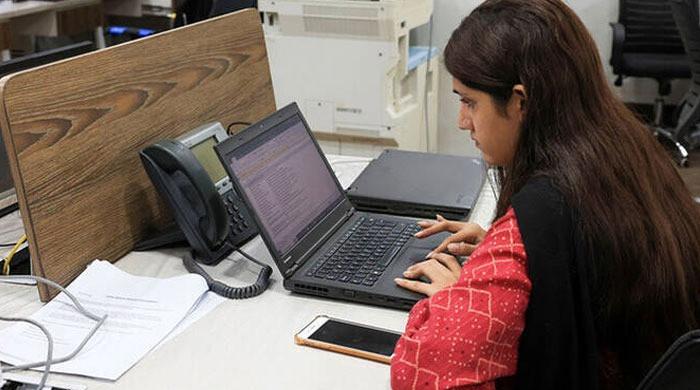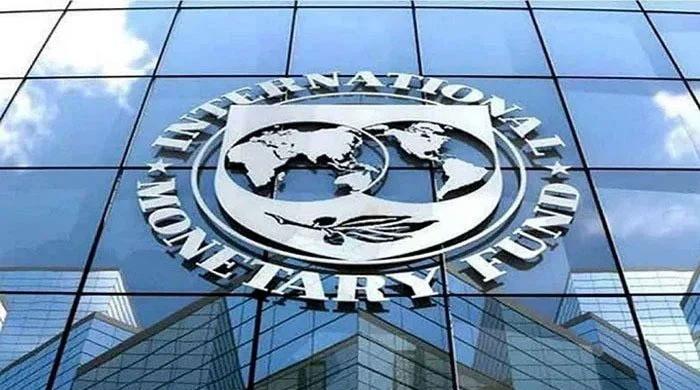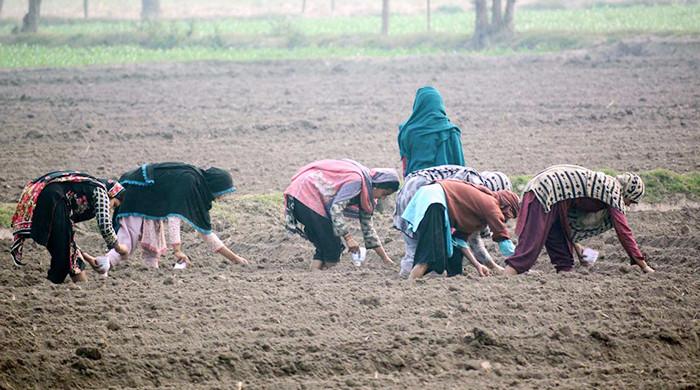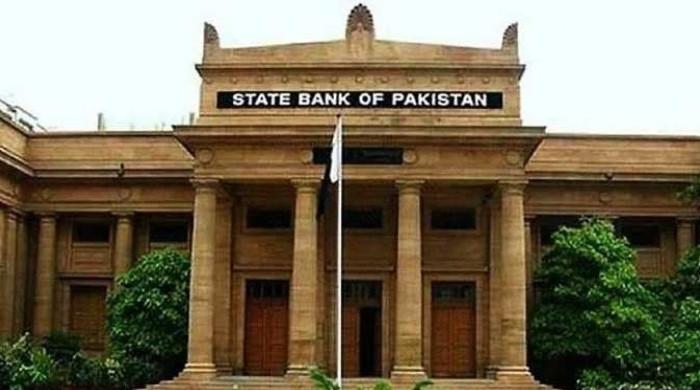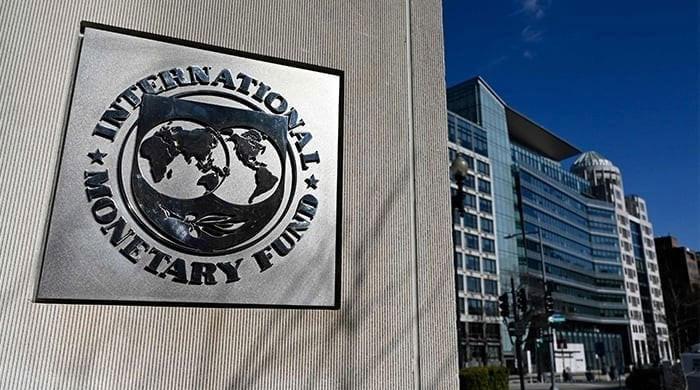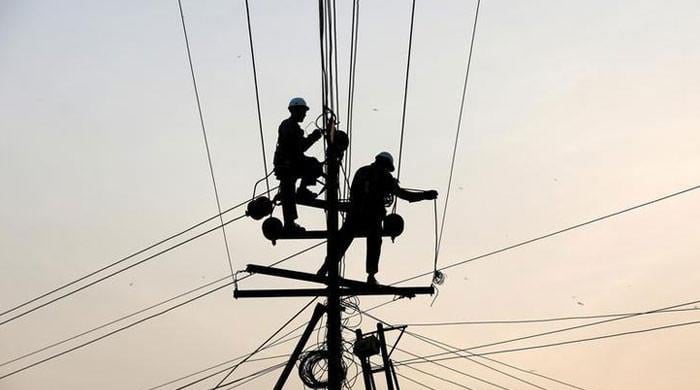SBP's foreign exchange reserves slump to $4.5 billion: sources
Central bank's forex reserves fall after repayment of loans worth $1.2 billion to UAE banks
January 07, 2023
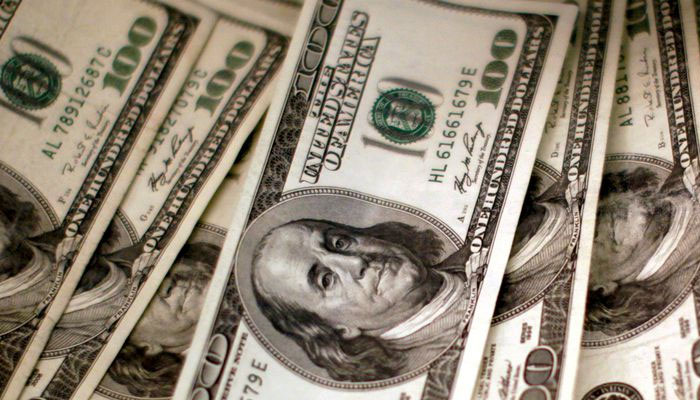
- Scheduled debt servicing dents forex reserves.
- Pakistan repays loans worth $1.2 billion to UAE banks.
- $4.5 billion reserves to barely cover a month's imports.
Foreign exchange reserves held by the State Bank of Pakistan (SBP) dwindled down to only $4.5 billion after the repayment of loans worth $1.2 billion to United Arab Emirates (UAE) banks, sources told Geo News Saturday.
This, according to sources, leaves the country with an import cover of only under a month, as Pakistan faces a severe economic crunch amid a greenback shortage.
A breakup shows Pakistan returned $600 million to Emirates Bank, while it repaid $420 million to Dubai Islamic Bank, according to sources.
Sources said the coalition government would try to mobilise foreign funding worth $1.5 billion in the upcoming International Conference on Climate Resilient Pakistan.
Prime Minister Shehbaz Sharif will travel to Geneva on Sunday. He will lead a high-level delegation comprising federal ministers and SAPMs to Switzerland where he will co-host the conference — along with United Nations Secretary-General Antonio Guterres — on January 9.
The conference aims to assist Pakistan's people and government recover more effectively from the recent devastating floods.
"Maybe our friendly countries are waiting for the donors' conference so they can help us [and provide loans]," Minister for Planning and Development Ahsan Iqbal told Geo News' Shahzeb Khanzada last month.
During the week ended on December 30, 2022, the forex reserves held by the central bank, dropped by $245 million to $5.57 billion — the lowest level since April 2014 — down from last week's reserves of $5.821 billion.
The net foreign reserves held by commercial banks amount to $5.84 billion, with the total reserves clocking in at $11.42 billion.
The National Security Committee (NSC) recently agreed on undertaking concrete steps — including import rationalisation as well as preventing illegal currency outflows and hawala business — in order to strengthen the economy.
Amid a crisis-like situation, Pakistan will have to repay approximately $8.3 billion in the shape of external debt servicing over the next three months (Jan-March) of the current fiscal year.
The government is eyeing to pass the ninth review of the International Monetary Fund (IMF) to secure a $1.7 billion bailout package, but both sides have made no substantial headway in recent days.
PM Shehbaz on Friday said an IMF delegation was slated to visit Pakistan in 2-3 days to “take up and finalise” the ninth review of the economy to unstick a direly needed bailout tranche of $1.1 billion.
“I spoke to IMF Managing Director Kristalina Georgieva [Thursday] and emphasised that Pakistan wishes to complete the IMF bailout programme,” the premier said during an address at the inauguration ceremony of Hazara Electric Supply Company (HAZECO).
“I urged her to soften the terms of the deal because the masses cannot be burdened anymore. We have slapped taxes on the rich segments of society," the premier claimed.
"I also pleaded with her to dispatch a delegation for the 9th review under the loan programme and she replied that IMF officials are scheduled to visit Pakistan in over a couple of days (2-3) days."
Meanwhile, Minister for Finance and Revenue Senator Ishaq Dar said that despite an uphill task, the country would meet its international obligations and not default.
Dar also sees Saudi Arabia and China beefing up their deposits in Pakistan "within a matter of days" and claimed that the forex reserves would see a rise gradually during the ongoing fiscal year.




